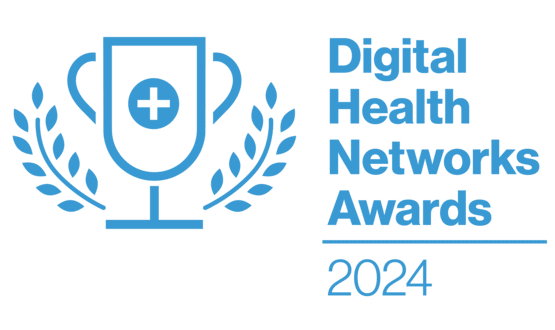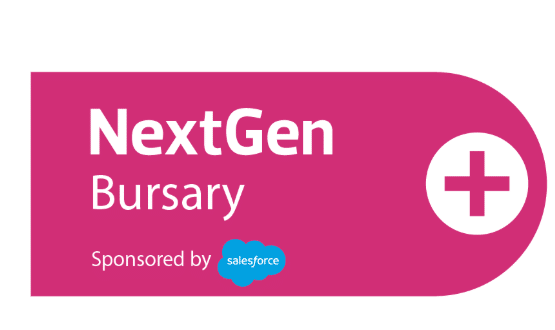Enter the CCG has a watercooler moment
- 26 November 2014

In a nutshell, my clinical commissioning group work is primarily concerned with assisting the flow of information.
While much of this concerns patient-related data, this is by no means my only area of involvement. I’m keen to ensure that knowledge of all types is communicated cleanly and efficiently to those who need it – including those who don’t even realise that they need it.
Communication within the CCG is part of this strategy, and presents an unusual and often unrecognised challenge.
The clinical commissioning group challenge
As we all know, CCGs are member organisations: their constituent practices are ultimately in charge.
Nevertheless, most of the work of the CCG itself is carried out by a central group of managers and administrators. Some of these are full-time: but many others (including most of the CCG’s clinicians) are part-time.
Our CCG is also split into localities, which creates a great sense of local cohesion. However, having separate locality offices, often some distance from the CCG’s central headquarters, can put further physical and emotional distance between locality staff and those working in the central CCG.
Clearly, any organisation structured in this way will have its own in-built communication problems. Some of this is geographical; but crucially, part-time staff won’t always be at work at the same time as other part-timers to whom they may need to relate.
The CCG has been aware of these challenges since the beginning and has taken careful steps to minimise their side-effects: we have a regular newsletter, an extranet and — as always — emails with multiple recipients cc’d in.
But as one of the part-time workers, I know at first hand that these official methods of communication don’t always operate as efficiently as might be hoped.
That watercooler moment
The trouble with any formal method of passing information – notices, emails, posters, web sites – is that almost invariably it isn’t rich enough.
Certainly, the main points will be communicated – but inevitably there is far less detail in any email than can be acquired from simply standing around, watching, talking and interacting with co-workers.
I call this ‘the watercooler moment’ – when, as a result of a purely chance encounter, a valuable piece of information is passed across, in a manner that sounds like non-information or just gossip.
“I hear that Jeff is leaving.” “Really?” “Yes, he’s been headhunted by the commissioning support unit to set up an informatics bureau for the local CCGs. See you…”
This transmits four priceless pieces of information – three of them obvious, one less so. Clearly, the CSU is setting up an informatics bureau; it’s going to be shared between the local CCGs; most importantly, not only will Jeff be heading it, but he’ll be leaving his existing CCG job as IT manager.
That means, in turn, that there may be a discontinuity in the current work he is doing. (Incidentally, all examples in this month’s column are entirely fictitious.)
So, as a result of this chance watercooler encounter, a whole swathe of important information has been transmitted.
It’s also come over long before the official, dry announcement in the minutes of some committee or other, or at the back end of a newsletter – which not everyone is likely to read, never mind remember.
Where is Paul?
Now of course, episodes like this don’t just happen at the watercooler itself but in the totality of the bustle of work in an office; the interruptions, the half-heard conversations, the gossip, and the banter.
All these contribute priceless nuggets of information that may not seem important at the time but get stored for recall at a later date.
This explains why part-time workers can sometimes feel so left out of things. How often have you heard part-timers say: “We could ask Paul about this,” only to be told: “Didn’t you know, he left last week?”
This can leave them feeling foolish and left out. It also means their carefully prepared plans collapse in front of their eyes, because Paul had been central to their strategy.
Unfortunately, staff who work full-time and/or in the central CCG simply don’t realise how much information they routinely impart or acquire in this informal fashion.
As a result, communications from the centre — from the full-timers — can easily assume a level of detailed knowledge that the part-timers and peripheral workers simply don’t have.
I couldn’t count the number of times that I’ve received an email saying something like: “As you know, Judith has now presented the report of her Task and Finish group…” when I didn’t even know about the group. Ooops.
A watercooler can replace a thousand emails
Is there anything CCGs can do to circumvent this sort of problem? It’s much more difficult than it might appear at first sight.
In just the same way that a picture is worth a thousand words, so a watercooler can replace a thousand emails. The richness of the information communicated there can’t possibly be replaced by a formal notification process, so there’s no point in even trying.
Perhaps the best any CCG can do in terms of a formal response is consciously to recognise that part-timers and those at the geographical periphery will inevitably be less well-informed than the rest, and make generous allowances for this.
The randomness and repetition of these watercooler interchanges is a vital part of its richness, as well: the official CCG announcement of the setting up of Judith’s group may have occurred just the once, in an email that – unfortunately – I wasn’t copied into.
On the other hand, a subsequent ‘watercooler moment’ when someone mentions her group would give me the opportunity to say: “What group?” (or even “Who is Judith?”) and to go on from there.
Chance reminders like this give frequent opportunities for the listeners to fill in gaps in their knowledge that they never realised they had.
The bottom line here is that, ultimately, random human interaction is irreplaceable as a source of information: it can’t be emulated by dry emails, notices and newsletters, however frequent, detailed or verbose.
The antidote is for the organisation actively to recognise the need to provide many opportunities (and encouragement) for staff to meet informally. And if you’ve got any ideas here, why don’t we chat about it — at the watercooler, perhaps?


Dr John Lockley
Dr John Lockley is clinical lead for informatics at Bedfordshire Clinical Commissioning Group and a part-time GP.




